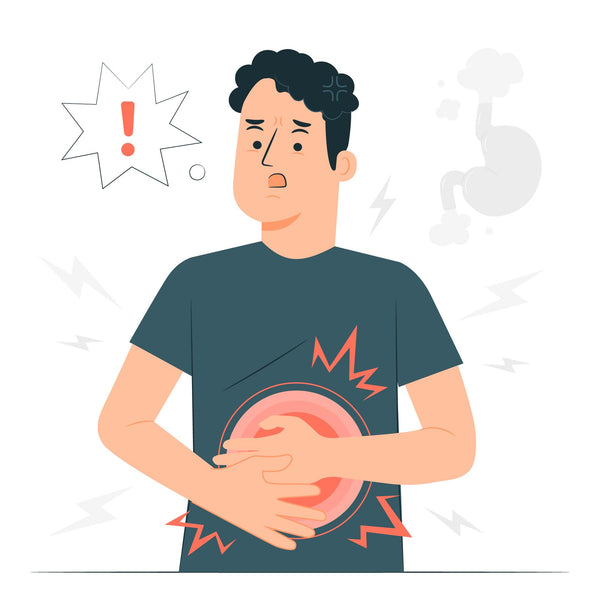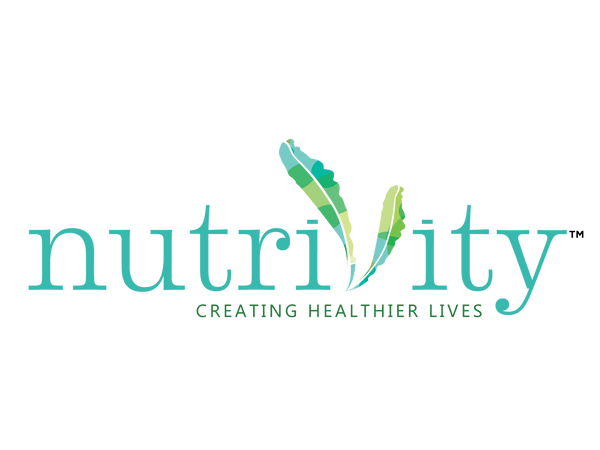Introduction
When it comes to our overall well-being, one often overlooked aspect is the impact of our diet on gut health. Gut issues, such as Irritable Bowel Syndrome (IBS), can significantly affect our quality of life. In fact, gut issues and IBS are more prevalent than we may think, and millions of people around the world struggle with these conditions on a daily basis.
Understanding Gut Issues and IBS

Before delving into the role of diet in combatting gut issues and IBS, it's important to understand what these conditions entail. Gut issues refer to any disorder or discomfort in the gastrointestinal tract, which includes the stomach and intestines. On the other hand, IBS is a specific functional disorder characterized by symptoms such as abdominal pain, bloating, and changes in bowel movements.
The causes of gut issues and IBS can vary from person to person. Some common triggers include stress, certain foods, infections, and hormonal changes. It's crucial to identify the root cause of these issues in order to effectively address them.
Furthermore, it's essential to recognize the relationship between gut health and overall well-being. The health of our gut affects not only our digestive system but also our immune system, mental health, and even skin health. By understanding this connection, we can take proactive steps to improve our gut health and alleviate the symptoms of gut issues and IBS.
The Role of Diet in Gut Health
Diet plays a fundamental role in maintaining a healthy gut by influencing the composition of the gut microbiome. The gut microbiome refers to the vast community of microorganisms that reside in our digestive system. These microorganisms play a vital role in various bodily functions, such as digestion, nutrient absorption, and immune system regulation.
Certain foods can disrupt the balance of the gut microbiome and trigger gut issues and IBS symptoms. Therefore, it's crucial to identify trigger foods specific to each individual. This requires close attention to how our body reacts to different types of foods and keeping a food diary to track any patterns or correlations with symptoms.
The Gut-Healing Diet
To actively combat gut issues and IBS, one effective approach is to follow a gut-healing diet. This diet focuses on incorporating foods that promote gut health and avoiding those that are potential triggers. By following a gut-healing diet, individuals can alleviate symptoms, reduce gut inflammation, and restore balance to the gut microbiome.
Foods to Include in a Gut-Healing Diet
- High-fiber foods: Foods rich in fiber, such as fruits, vegetables, whole grains, and legumes, are essential for maintaining a healthy gut. They promote regular bowel movements and provide nourishment for the gut microbiome.
- Fermented foods and probiotics: Incorporating fermented foods, like yogurt, kimchi, sauerkraut, and kefir, into our diet introduces beneficial bacteria to the gut. Additionally, consuming probiotic supplements can help restore the balance of microorganisms in the gut.
- Anti-inflammatory foods: Including foods with anti-inflammatory properties, such as fatty fish, leafy greens, turmeric, and ginger, can help reduce gut inflammation and alleviate symptoms.
Foods to Avoid in a Gut-Healing Diet
- Trigger foods for gut issues and IBS: It is important to identify foods that trigger gut issues and IBS symptoms and avoid them. These can vary from person to person but commonly include spicy foods, coffee, alcohol, and high-fat foods.
- Processed and sugary foods: Highly processed foods and those high in sugar can disrupt the gut's natural balance and contribute to inflammation. It is best to opt for whole, unprocessed foods and limit added sugars.
Specific Diets for Gut Health
In addition to a general gut-healing diet, there are specific diets designed to address gut issues and IBS symptoms.
Low FODMAP diet for IBS
The Low FODMAP diet is commonly recommended for individuals with IBS. FODMAPs are a group of carbohydrates that can commonly trigger symptoms in those with IBS. By reducing or temporarily eliminating high FODMAP foods, individuals can determine which specific carbohydrates are causing their symptoms and manage their diet accordingly.
Gluten-free diet and its impact on gut health:
For individuals with gut issues related to gluten sensitivity or celiac disease, a gluten-free diet is an effective approach. Avoiding foods containing gluten, such as wheat, barley, and rye, can help alleviate symptoms and promote gut healing.
Plant-based diets and their benefits for gut issues:
Plant-based diets, rich in fruits, vegetables, whole grains, and legumes, provide numerous benefits for gut health. These diets are typically high in fiber, antioxidants, and phytochemicals, which can promote a healthy gut environment. Additionally, plant-based diets have been associated with reduced inflammation and improved overall well-being.
Lifestyle Factors for Gut Health:
In addition to diet, there are several lifestyle factors that can significantly impact gut health.
Stress management and its effect on the gut:
Chronic stress can disrupt the delicate balance of the gut microbiome and contribute to gut issues and IBS symptoms. Implementing stress management techniques, such as mindfulness, yoga, and regular exercise, can help reduce stress levels and support a healthier gut.
The impact of sleep on gut health:
Quality sleep is crucial for maintaining a healthy gut. Lack of sleep can lead to imbalances in gut bacteria and increase gut permeability, potentially exacerbating gut issues and IBS symptoms. Establishing healthy sleeping habits, such as maintaining a consistent sleep schedule and creating a conducive sleep environment, can positively impact gut health.
Supplementation for Gut Health:
In some cases, supplementation can be beneficial for improving gut health.
Probiotics and their role in promoting gut health:
Probiotics are live beneficial bacteria that can be taken as supplements to restore the balance of the gut microbiome. Choosing the right probiotic strains can help alleviate gut issues and IBS symptoms, improve digestion, and enhance overall gut health.
Other supplements to consider for gut health:
In addition to probiotics, certain supplements such as digestive enzymes, glutamine, and fiber supplements may be suggested by healthcare professionals to support gut healing and alleviate symptoms.
Managing Gut Issues and IBS Through Diet:
Indian cuisine offers a variety of options that can promote good gut health. A healthy gut is essential for overall well-being, and it can be maintained or improved by incorporating foods that are rich in fiber, probiotics, and prebiotics. Here are some Indian food options that can support gut health:
- Yogurt (Curd/Dahi): Yogurt is a natural source of probiotics, which are beneficial bacteria that promote gut health. Consuming plain, unsweetened yogurt or incorporating it into raita, lassi, or buttermilk can be beneficial.
- Fermented Foods: Traditional Indian fermented foods like dosa, idli, dhokla, and pickles (achar) can be good for your gut as they contain beneficial bacteria. Fermentation also makes nutrients more accessible to the body.
- Fiber-Rich Vegetables: Many Indian dishes use fiber-rich vegetables like okra (bhindi), spinach (palak), and fenugreek (methi). Fiber is essential for a healthy gut as it promotes regular bowel movements.
- Legumes and Lentils: Indian cuisine includes a wide range of legumes and lentils (dal). These are excellent sources of plant-based protein and fiber, which are beneficial for gut health.
- Whole Grains: Replace refined grains with whole grains like brown rice, whole wheat, and millets, which contain more fiber and nutrients. They promote the growth of beneficial gut bacteria.
- Spices: Spices like turmeric, cumin, and ginger are commonly used in Indian cooking and have anti-inflammatory and digestive properties. They can help maintain a healthy gut.
- Fruits: Fruits like papaya, banana, and guava are rich in fiber and can help regulate digestion. You can consume them as a whole or prepare fruit salads and smoothies.
- Herbs: Incorporate herbs like cilantro, mint, and basil into your dishes. They not only add flavor but also have digestive benefits.
- Fenugreek Seeds (Methi): Fenugreek seeds are known for their digestive properties. They can be soaked and consumed in the morning or added to various dishes.
- Probiotic Foods: In addition to yogurt, consider including other probiotic foods like kefir or homemade pickles in your diet.
- Buttermilk (Chaas): Buttermilk is a traditional Indian beverage that is cooling and aids in digestion. It's often consumed after a meal.
- Ghee: Clarified butter (ghee) is rich in butyric acid, which is good for gut health. Use it in moderation in your cooking.
The role of diet in combating gut issues and IBS cannot be overstated. By understanding the impact of diet on gut health, identifying trigger foods, and following a gut-healing diet, individuals can alleviate symptoms and improve their overall well-being. Lifestyle factors, such as stress management and quality sleep, also play a crucial role in supporting gut health. Considering supplementation and working with healthcare professionals are essential for personalized guidance. With dedication and a tailored approach, individuals can successfully manage gut issues and IBS, leading to a happier and healthier gut.

